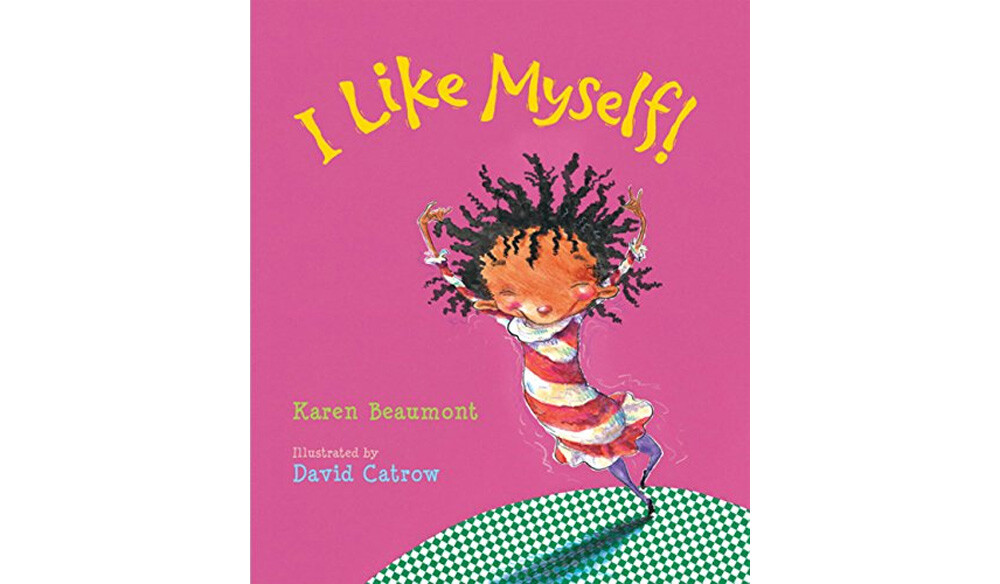No matter where you stand on workers’ rights and unions, the book is a lesson in fairness. In a time when workers are leaving jobs in droves because of low wages, unfair practices, and flat-out inhumane treatment, Click Clack Moo reminds us that everyone benefits from an equitable playing field and taking care of each other. You don’t need to be a socialist to understand cold people deserve blankets. Hell, my illiterate three-year-old has never even touched Marx or Chomsky, and even he knows how to share his toys or offer me a blanket when I’m on the couch. It’s never too early to learn that other people have worth. Hey, speaking of worth …
I Like Myself By Karen Beaumont
It’s important for kids to have a sense of self-worth. The world is scary, and people can be mean, so having confidence and being proud of your identity are skills your child needs to develop early. This book does that, filled out with wild illustrations that are somehow both whimsical and grotesque, but in a fun way. Page after page, the little girl narrating the story spouts self-affirmations while going about her singularly imaginative day.

HMH Books
I Like Myself also features a Black main character, which brings me to an important topic in children’s lit: representation. My son is biracial (my wife is Black and I’m white), so we deliberately went hunting for books with characters that look like him or at least with representations of both sides of his family. How’d it go? Well, the genre has gotten slightly more progressive than the days of Franklin sitting by himself at Charlie Brown’s Thanksgiving. We had no trouble loading up the shelves with books showing characters from all manner of different backgrounds. But our good luck doesn’t mean there’s not more work to be done. The data-collecting group Diverse BookFinder reports that BIPOC are still significantly underrepresented in picture books. And that’s a problem.
Before you go off on some sort of “it’s just kids’ books, why does it have to be political” rant in the comments, remember that these are the first pieces of media kids interact with. Books can shape perspectives. Dr. Rudine Sims Bishop has a concept I like: mirror or window books. Basically, a mirror book allows children to see themselves, whereas a window book allows children to see other people’s perspectives. It’s important for all children to see themselves represented, and important for them to understand that other people matter.
Fiction, as author George Saunders says, can sometimes be empathy training wheels. Again, the world is scary and people can be mean. It’s never too early to learn empathy. And to bring it back to the ostensible subject of this entry, I’ll sign off like Ru Paul: it’s never too early to learn to like yourself.
Chris Corlew is self-aware enough to know that any children’s book he could potentially write would be garbage. Instead, he writes about werewolves. Find him on Twitter.
Top image: Dial Books
5 Children’s Books That Won't Drive Parents Mad
Source: Pinoy Daily News


0 Comments